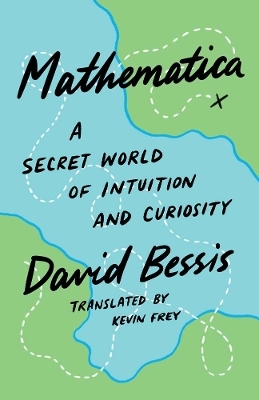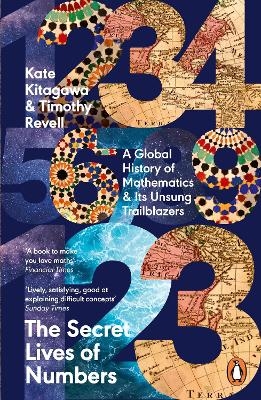
The Science of Conjecture
Johns Hopkins University Press (Verlag)
978-0-8018-7109-2 (ISBN)
- Titel ist leider vergriffen;
keine Neuauflage - Artikel merken
Before Pascal and Fermat's discovery of the mathematics of probability in 1654, how did we make reliable predictions? What methods in law, science, commerce, philosophy and logic helped us to get at the truth in cases where certainty was not attainable? In this book, James Franklin examines how judges, witch inquisitors and juries evaluated evidence; scientists weighed reasons for and against scientific theories; and merchants counted shipwrecks to determine insurance rates. Sometimes this type of reasoning avoided numbers entirely, as in the legal standard of "proof beyond a reasonable doubt"; at other times it involved rough numerical estimates, as in gambling odds or the level of risk in chance events. The book provides a history of rational methods of dealing with uncertainty. Everyone can take a rough account of risk, Franklin argues, but understanding the principles of probability and using them to improve performance poses serious problems, the solution to which we have only learned over many generations and after much trial and error. This study explores the coming to consciousness of the human understanding of risk.
James Franklin is a senior lecturer in mathematics at the University of New South Wales.
Chapter 1 The Ancient Law of Proof: Egypt and Mesopotamia; The Talmud; Roman Law; Proof and Presumptions; Indian Law. Chapter 2 The Medieval Law of Evidence: Suspicion, Half-proof, and the Inquisition Dark Age Ordeals; The Gregorian Revolution; The Glossators Invent Half-Proof; Presumptions in Canon Law; Grades of Evidence and Torture; The Postglossators Bartolus and Baldus; The Competed Theory; The Inquisition; Law in the East. Chapter 3 Renaissance Law: Henry VIII Presumed Wed; Tudor Treason Trials; Continental Laws - The Treatises on Presumptions; The Witch Inquisitors; English Legal Theory and the Reasonable Man. Chapter 4 The Doubting Conscience and Moral Certainty: Penance and Doubts; The Doctrine of Probabilism; Suarez: Negative and Positive Doubt; Grotius, Silhon, and the Morality of the State; Hobbes and the Risk of Attack; The Scandal of Laxism; English Casuists Pursue the Middle Way; Juan Caramuel Lobkowitz, Prince of Laxists; Pascal's Provincial Letters. Chapter 5 Rhetoric, Logic, Theory: The Greek Vocabulary of Probability; The Sophists and the Art of Persuasion; Aristotle's Rhetoric and Logic; The Rhetoric to Alexander; Roman Rhetoric: Cicero and Quintilian; Islamic Logic; The Scholastic Dialectical Syllogism; Probability in Ordinary Language; Humanist Rhetoric; Late Scholastic Logic. Chapter 6 Hard Science: Observation and Theory; Aristotle's Not-by-Chance Argument; Averaging of Observations in Greek Astronomy; The Simplicity of Theories; Nicole Oresme on Relative Frequency; Copernicus; Kepler Harmonizes Observations; Galileo on the Probability of Copernican Hypothesis. Chapter 7 Soft Science and History: The Physiognomics; Divination and Astrology; The Empiric School of Medicine on Drug Testing; The Talmud and Maimonides on Majorities; Vernacular Averaging and Quality Control; Experimentation in Biology; The Authority of Histories; The Authenticity of Documents; Valla and the Donation of Constantine; Cano and the Signs of True Histories. Chapter 8 Philosophy: Action and Induction Carneades's Mitigated Skepticism; The Epicureans on Inference from Signs; Inductive Skepticism and Avicenna's Reply; Aquinas on Tendencies; Scotus and Ockham on Induction; Nicholas of Autrecourt; The Decline of the West; Bacon and Descartes - Certainty? or Moral Certainty?; The Jesuits and Hobbes on Induction; Pascal's Deductivist Philosophy of Science. Chapter 9 Religion: Laws of God, Laws of Nature The Argument from Design; The Church Fathers; Inductive Skepticism by Revelation; John of Salisbury; Maimonides on Creation; Are Laws of Nature Necessary?; The Reasonableness of Christianity; Pascal's Wager. Chapter 10 Aleatory Contracts: Insurance, Annuities, and Bets The Price of Peril; Doubtful Claims in Jewish Law; Olivi on Usury and Future Profits; Pricing Life Annuities; Speculation in Public Debt; Insurance Rates; Renaissance Bets and Speculation; Lots and Lotteries; Commerce and the Casuists.
| Erscheint lt. Verlag | 18.10.2002 |
|---|---|
| Verlagsort | Baltimore, MD |
| Sprache | englisch |
| Maße | 156 x 235 mm |
| Gewicht | 703 g |
| Themenwelt | Mathematik / Informatik ► Mathematik ► Geschichte der Mathematik |
| Naturwissenschaften | |
| ISBN-10 | 0-8018-7109-3 / 0801871093 |
| ISBN-13 | 978-0-8018-7109-2 / 9780801871092 |
| Zustand | Neuware |
| Informationen gemäß Produktsicherheitsverordnung (GPSR) | |
| Haben Sie eine Frage zum Produkt? |
aus dem Bereich


